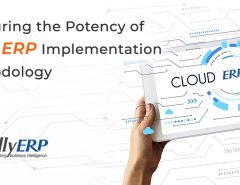Many organizations tend to hustle with ERP implementation projects without realizing its side effects. ERP implementation without ERP readiness assessment often results in disaster not only in terms of financial overruns but also failed implementation.
It costs dearly to the company to have wasted umpteen labour hours and energy without knowing whether or not the company was prepared for the ERP project in the first place.
Though one cannot be absolutely sure about ERP success until it is fully implemented and its results are tracked over a period of time; the probability of success increases if one is well-aware of the firm’s shortcomings and areas of improvement.
Following are the Important Steps to Conduct an ERP readiness assessment of your firm:
-
Analysis of Business Processes –
ERP influences a number of business processes depending upon the modules implemented by you. However, you must analyze every process subject to change or re-engineering. Process analysis should be defined and tested by key stakeholders in the company.
-
Employee Receptivity –
The primary users of the ERP systems are your employees. Even after testing of business processes on paper, the preparedness of execution on the ground is established by employees. ERP may affect employee communication behaviour resulting in differences among employees.
The impact of ERP implementation on employees should be carefully studied to find out employee receptivity to changes made in organizational processes. Resisting factors should be well accounted and a detailed plan, including training of employees, to deal with those factors should be drafted.
-
Ascertain the right time to go live –
ERP readiness assessment protects the organization from implementation delays. Implementation delays could transpire for a number of reasons.
Such reasons may include insufficient employee training, data unpreparedness (existing data not ready in defined format for ERP feed), delay in winding up existing software and more so. Assessment helps in anticipating these warning signs that could delay the project for undue reasons.
On the contrary, ERP readiness assessment also helps organizations to deliberately procrastinate implementation if the need arises before it is too late to avoid operational risks later on. Once the visible hindrances are ironed out, implementation can be carried out smoothly without experiencing cost overruns and loss of purchase orders.
Do not rush ERP implementation before ERP Readiness Assessment:
Though ERP Software promises business growth, incompatibility and unpreparedness are important elements that can hinder ERP implementation. The wrong implementation in some cases may bring an organization to the brink of bankruptcy.
In a paper titled, “Enterprise Resource Planning Readiness Assessment”, published in “Arabian Journal of Business and Management Review”, the authors Hadi Bakhsheshi Tanyani and Shahram Gilaninia have emphasized the importance of ERP readiness assessment.
The feasibility study is important to conduct before implementing ERP in accordance with the capabilities and limitations of the organization.





Leave a Reply